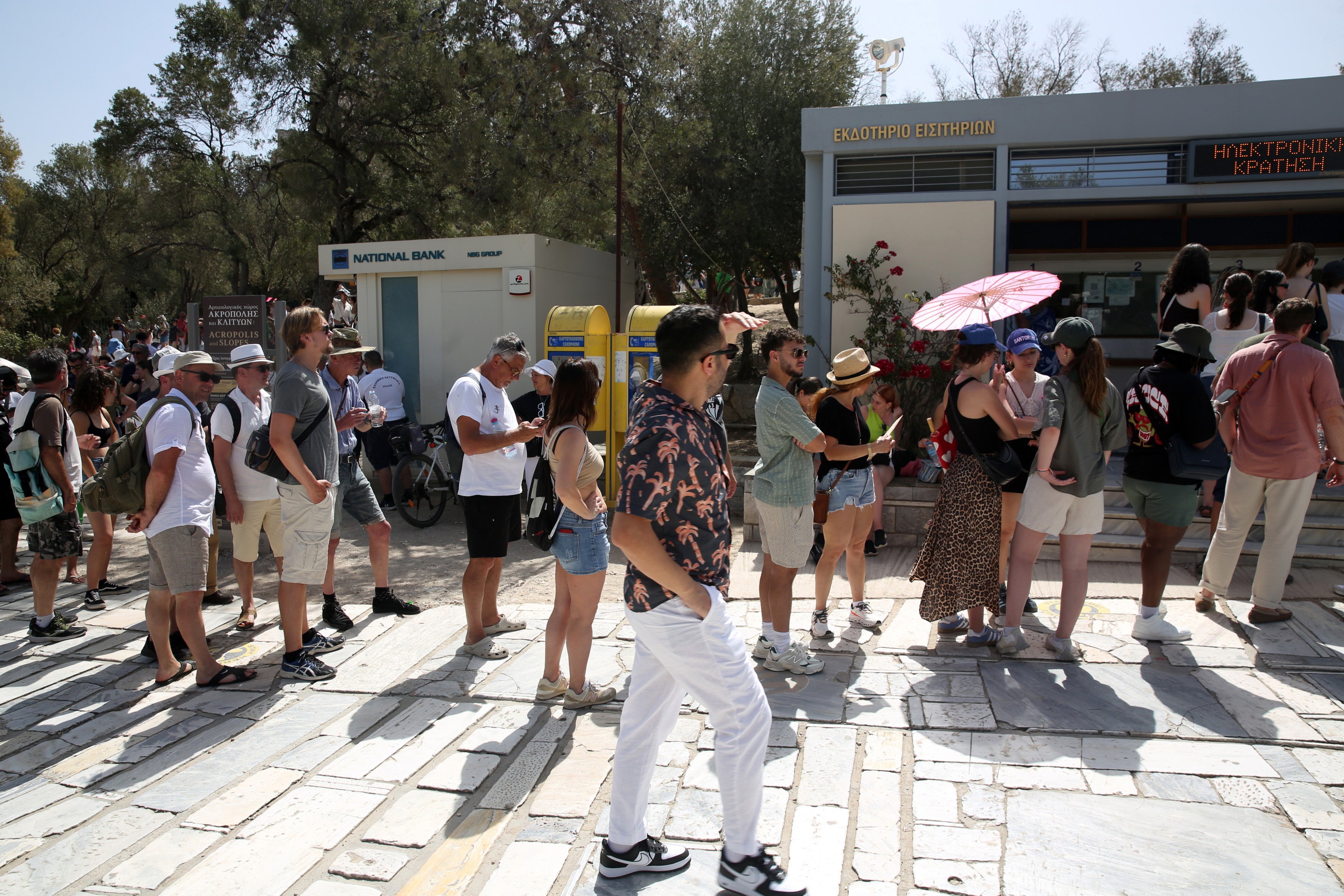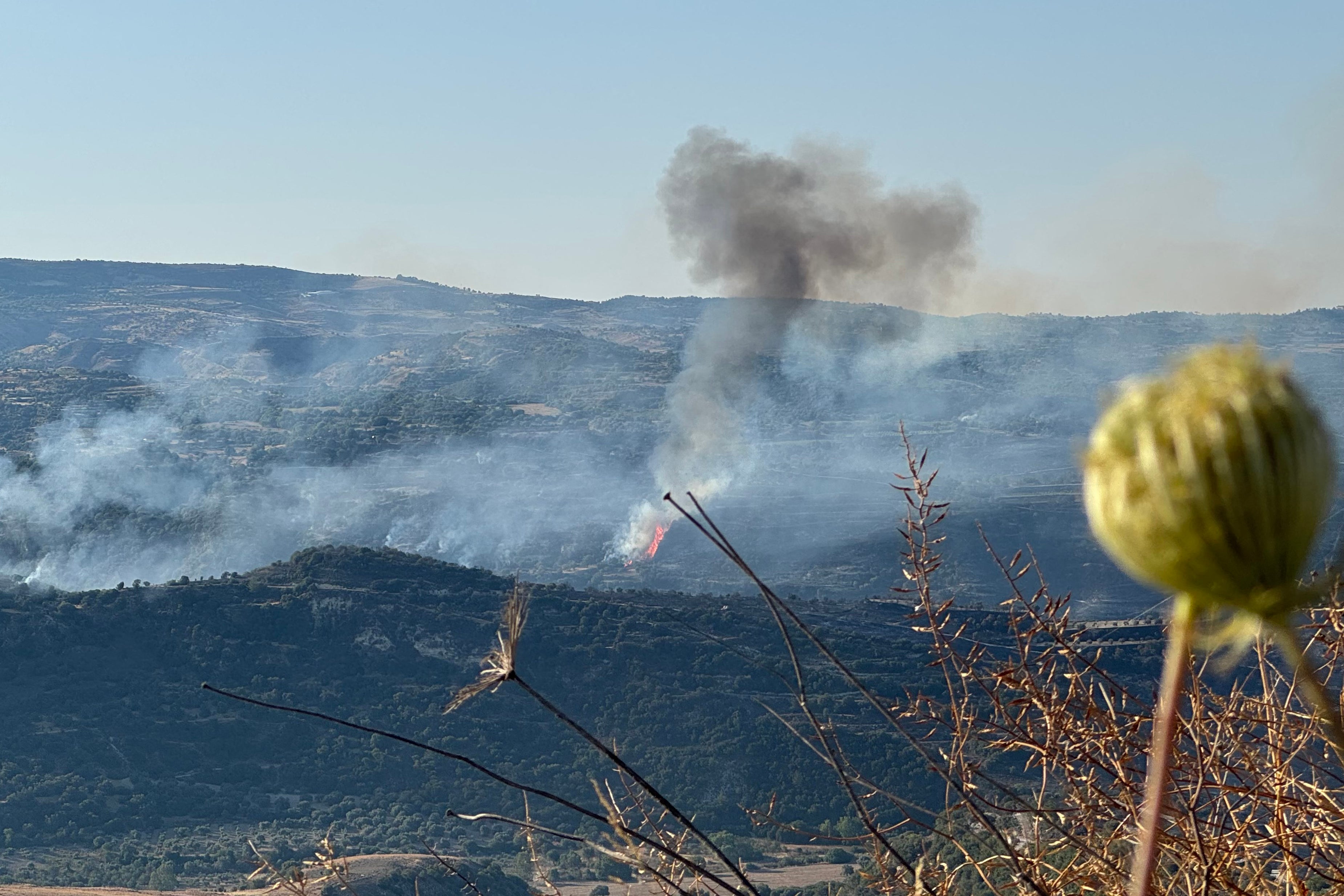Athens heatwave: Tourist attractions shut and schools suspended as huge fire breaks out in city
Temperatures were expected to hit 43 degrees Celsius

Your support helps us to tell the story
From reproductive rights to climate change to Big Tech, The Independent is on the ground when the story is developing. Whether it's investigating the financials of Elon Musk's pro-Trump PAC or producing our latest documentary, 'The A Word', which shines a light on the American women fighting for reproductive rights, we know how important it is to parse out the facts from the messaging.
At such a critical moment in US history, we need reporters on the ground. Your donation allows us to keep sending journalists to speak to both sides of the story.
The Independent is trusted by Americans across the entire political spectrum. And unlike many other quality news outlets, we choose not to lock Americans out of our reporting and analysis with paywalls. We believe quality journalism should be available to everyone, paid for by those who can afford it.
Your support makes all the difference.Greece has shut tourist attractions and closed schools as Athens is facing its first heatwave of the summer.
Authorities shut the ancient Acropolis tourist site, suspended schools and stationed medics across the capital city on Wednesday as it faced the first heatwave of the summer.
Temperatures were expected to hit 43 degrees Celsius (109 degrees Fahrenheit) on Wednesday and Thursday in parts of the Mediterranean country.
Conditions worsened in an area north of the capital, after a fire at a cookware and food container factory sent clouds of thick black smoke into the sky. Cellphone alerts sent by a government disaster response agency urged residents in the area to remain indoors.
The heatwave is believed to be driven by southerly winds bringing hot air and dust from North Africa.
The Acropolis hill, home to one of the world’s most famous archaeological sites that includes the Parthenon temple, was closed from noon to 5 pm and Red Cross staff handed out bottles of water to tourists.
Local press report tourists fainting while waiting in line.
City authorities announced that garbage collection would also be halted for several hours Wednesday and that seven air-conditioned spaces would be opened to the public. Drones with thermal cameras were being used in Athens to coordinate the public health response, officials said.

Many primary schools and nurseries across the country will shut for two days.
In Cyprus a huge wildfire has destroyed homes and evacuated villages. The villages of Psathi, Choulou, and Lemona were evacuated.
President Nikos Christodoulides praised the “superhuman efforts” of the firefighting teams but confirmed the fire was not yet under control. Greece has sent two Canadair firefighting aircraft to help fight the wildfire.

Greece is one of the most climate-impacted countries in Europe. Last year, rising temperatures fuelled deadly wildfires and erratic rains caused some of the worst flooding on record, both of which damaged crops and livelihoods.
Last winter was the hottest on record and rainfall was low, creating the conditions for more fires, scientists say.
Similar conditions were seen last year across much of southern Europe, including Portugal, France, Spain and Italy where fires caused dozens of deaths.
In Greece, fires began earlier than expected this year, including one in March.
Firefighters and police were patrolling forests from air and land on Wednesday, ahead of what is expected to be a windy end to the week, raising the risk of fires spreading.
After last year’s destructive wildfires, including on the island of Rhodes which prompted the biggest evacuation in peace time, Greece has scaled up its preparations by hiring more staff and stepping up training.
To cope with the crisis, the country is fast-tracking a 2.1 billion euro ($2.3 billion) program to upgrade its fleet of water tankers and create an artificial intelligence-driven sensor network to detect smoke in the early stages of a fire.
But delivery of the new equipment won’t start until next year, leaving planners to scramble to find alternatives to cut response times.
Join our commenting forum
Join thought-provoking conversations, follow other Independent readers and see their replies
Comments